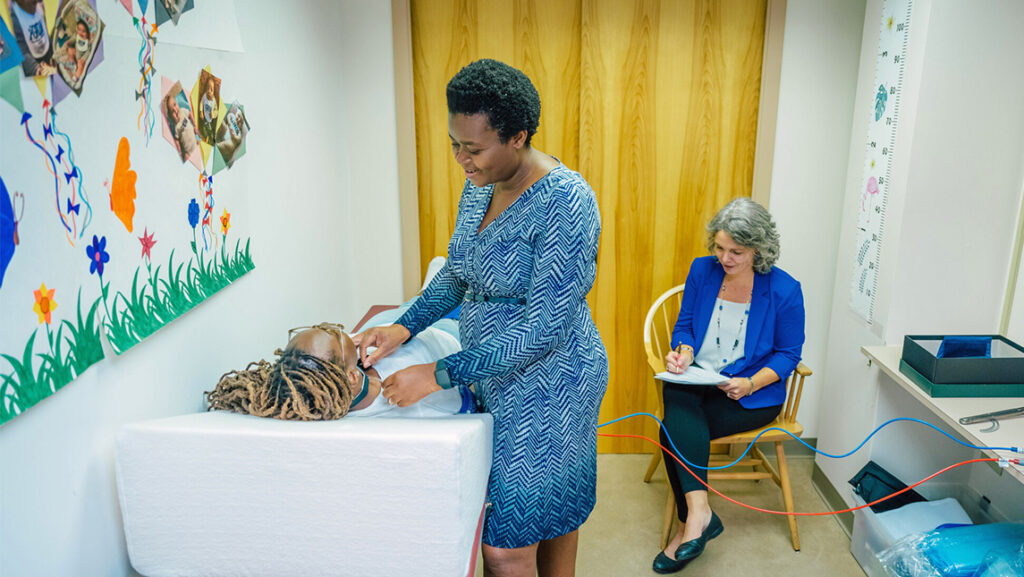
The COVID-19 pandemic has affected all of us, not only in the way we live our daily lives, but in the ways we are now feeling about our lives, relationships with the people who are or are not around us, and about the future. Stress levels have changed as people are confined mainly to their homes and separated from others, without the normal societal institutions and support networks.
But with these changes and limitations can come opportunities for knowledge about human behavior and emotions.
UNC Greensboro Assistant Professor of Psychology Suzanne Vrshek-Schallhorn and a group of undergraduate and graduate students are presently conducting a research study to understand how people are reacting to and handling COVID-19 as a stressor in their lives, and how the disruptions in daily life are affecting their moods.
In the Department of Psychology Genes, Environment & Emotion (GEnE) Lab, directed by Vrshek-Schallhorn, the researchers typically study emotional responses to brief, lab-controlled stressors. This April, they pivoted with the times and created a survey to support a new study, “Pandemic Circumstances and Mood,” which launched May 1 and is now underway.
“In our lab, we are interested in the pathways from stress to depression,” says Vrshek-Schallhorn. “Interpersonal stress seems to be particularly noxious, and with our new study we want to objectively measure how people feel about their circumstances and look at what their circumstances are like and who is vulnerable to additional stress.”
The survey is designed to take 30 minutes and asks questions that may reveal how life circumstances and mood correlate. Questions examine the social distancing effect on a variety of interpersonal relationships, as well as the individual’s comfort level in their home and their ability to acquire necessary supplies, such as groceries. One thing that distinguishes the survey is the opportunities responders have to tell their stories in their own words, so that the researchers can comprehend the narratives more deeply.
“Life stress, particularly in combination with other risk factors, can result in the onset or exacerbation of mental health difficulties, and we have already seen this occurring during the COVID-19 pandemic,” explains participating graduate student Gail Corneau. “Our study aims to identify how the outbreak of the virus is affecting people’s mental health with a focus on uncovering who is at greater or reduced risk for experiencing these outcomes.”
While this study is different than what was originally planned for the spring semester, Vrshek-Schallhorn not only sees value in the data that will be collected, but in the real-world experience students have gained in continuing research in uncertain and unusual circumstances.
“The students have been very resilient and adaptive, and they’ve also been very engaged,” she says. “They’ve learned very quickly about methodology and thinking about issues with demographics.”
More participants are sought, and the anonymous survey will be open for several more weeks. To be a part of this important work and take the survey, please visit the Pandemic Circumstances and Mood Study survey page.
Story by Susan Kirby-Smith, University Communications
Graphic edited by Giselle Chun


